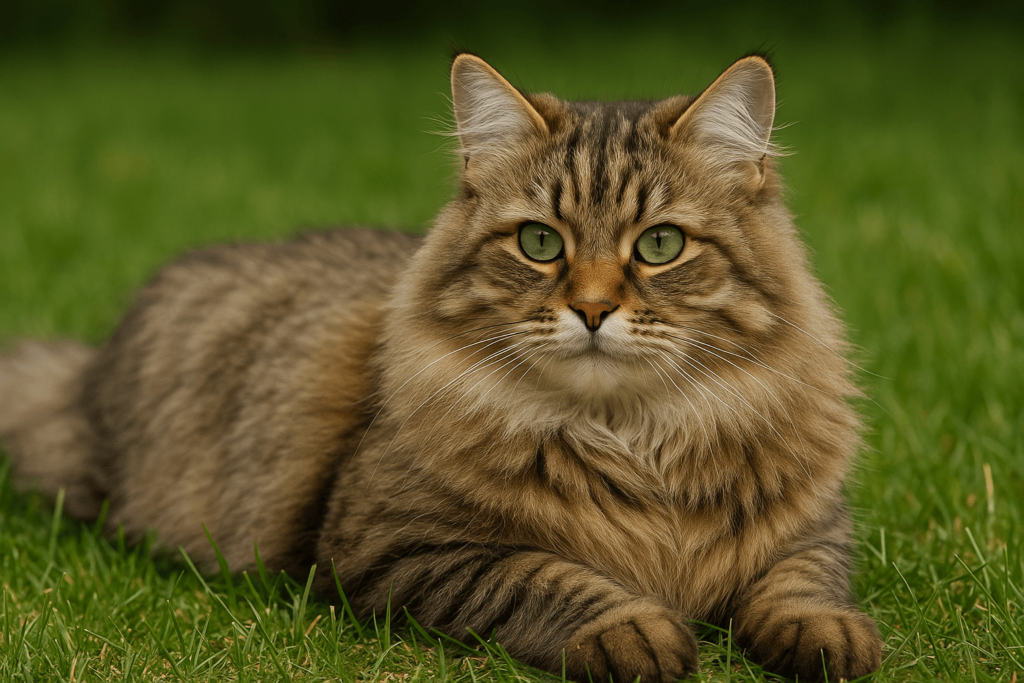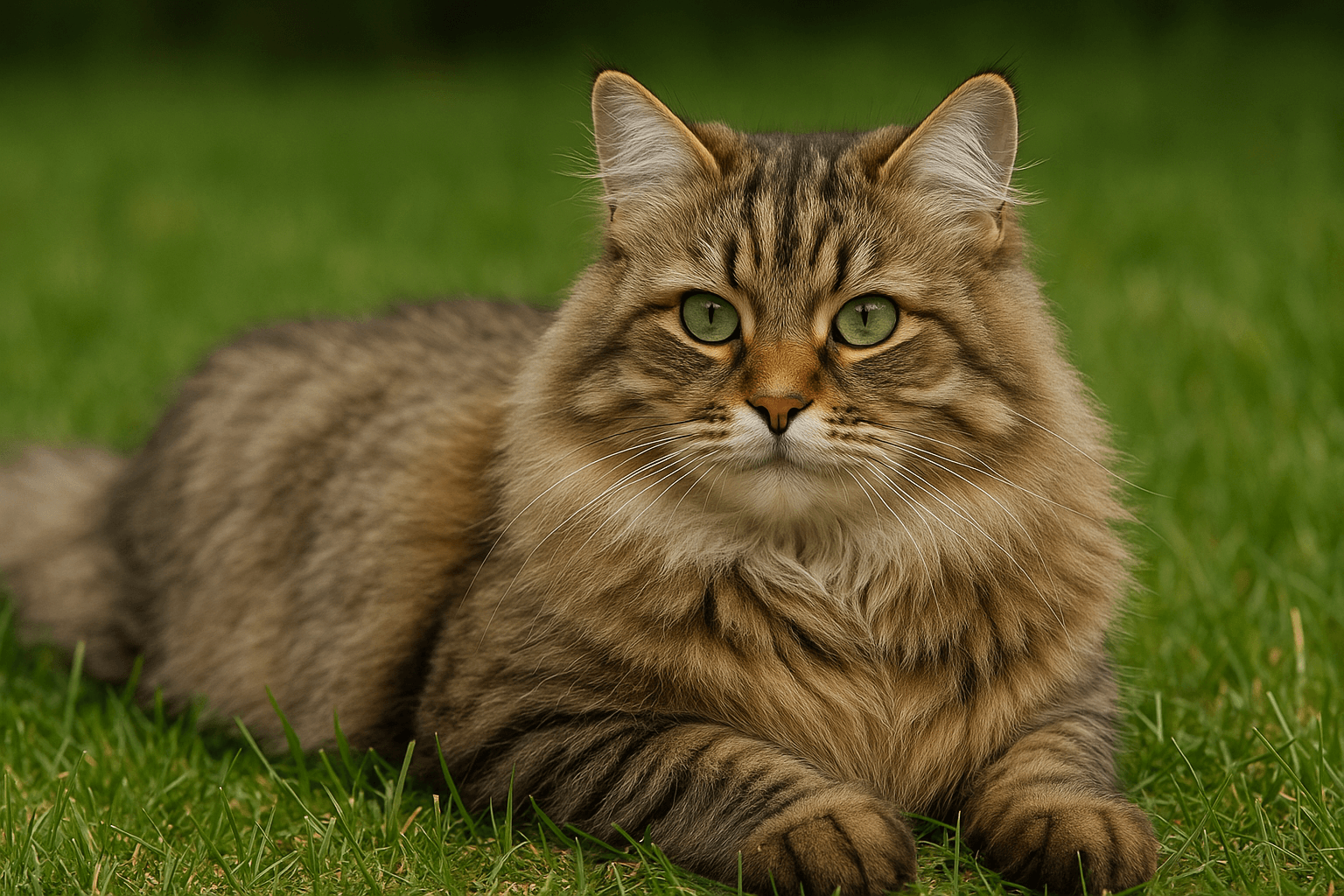Siberian Cat Lifespan: How Long Can These Majestic Felines Live?
The Siberian cat, known for its striking appearance, luxurious coat, and affectionate personality, is a breed that captures the hearts of cat lovers worldwide. One of the most common questions potential owners ask is about the Siberian cat lifespan. On average, these robust felines live between 12 to 15 years, but with proper care, some can even reach their late teens or early twenties. Understanding the factors that influence their longevity is key to ensuring your Siberian cat enjoys a long, happy, and healthy life. In this article, we’ll explore everything you need to know about maximizing your Siberian’s lifespan while celebrating what makes this breed so special.
Key Factors That Influence the Siberian Cat Lifespan
Several factors play a crucial role in determining how long your Siberian cat will live. By addressing these areas, you can help your feline companion thrive for years to come.
Genetics and Breed Health:
Siberians are generally a hardy breed with few hereditary health issues. However, responsible breeding practices are essential to minimize genetic risks.Diet and Nutrition:
A balanced diet rich in high-quality protein supports overall health and boosts longevity. Avoid overfeeding to prevent obesity-related complications.Regular Veterinary Care:
Routine check-ups and vaccinations ensure early detection of potential health issues, allowing for timely intervention.Exercise and Mental Stimulation:
Siberians are active cats that require regular play and stimulation to maintain physical fitness and mental sharpness.Living Environment:
Providing a safe, stress-free home free from hazards like toxic plants or open windows reduces the risk of accidents and illnesses.
By focusing on these factors, you can significantly enhance your Siberian cat’s chances of living a long and fulfilling life.

Common Health Issues in Siberian Cats and Their Impact on Lifespan
While Siberian cats are relatively healthy, they are not immune to certain health conditions that could affect their lifespan. Awareness of these issues allows you to take preventive measures and seek prompt treatment when needed.
Hypertrophic Cardiomyopathy (HCM):
This heart condition is one of the most common genetic diseases in Siberians. Regular screenings can help detect HCM early.Polycystic Kidney Disease (PKD):
Though more prevalent in other breeds, PKD can occasionally affect Siberians. Genetic testing helps identify carriers before symptoms appear.Obesity:
Overweight Siberians face an increased risk of diabetes, joint problems, and reduced mobility, all of which can shorten their lifespan.Dental Problems:
Poor dental hygiene can lead to gum disease and infections, impacting overall health and longevity.Parasites and Infectious Diseases:
Fleas, ticks, and internal parasites can weaken your cat’s immune system if left untreated. Preventive care is essential.
Addressing these health concerns through proactive care ensures your Siberian remains vibrant and healthy throughout their life.
Check this guide 👉Is the Siberian Cat Hypoallergenic? Best 7 Expert Tips!
Check this guide 👉Siberian Cat vs Maine Coon: Best 7 Expert Tips!
Check this guide 👉Siberian Cat vs Norwegian Forest Cat: Best 7 Expert Tips!
Tips for Maximizing Lifespan | Warning Signs of Health Issues |
|---|---|
Provide a high-protein, balanced diet | Lethargy or sudden changes in behavior |
Schedule annual vet check-ups | Difficulty breathing or coughing |
Keep your home free of toxins | Swollen abdomen or weight loss |
Offer plenty of toys and climbing space | Excessive thirst or frequent urination |
Brush teeth regularly for dental health | Visible lumps, bumps, or skin lesions |
How to Enhance Your Siberian Cat’s Quality of Life
Beyond simply extending their lifespan, enhancing your Siberian cat’s quality of life ensures they remain happy and content throughout their years. Here are some strategies to achieve this goal.
Provide Ample Playtime:
Engage your cat in interactive play sessions using toys like feather wands or laser pointers to keep them physically active.Create Vertical Spaces:
Install cat trees or shelves to give your Siberian opportunities to climb and explore, satisfying their natural instincts.Maintain Grooming Routines:
Regular brushing prevents matting and reduces hairballs, keeping their luxurious coat in top condition.Socialize Regularly:
Siberians are social cats that thrive on companionship. Spend quality time bonding with your pet daily.Minimize Stressors:
Loud noises, unfamiliar pets, or drastic changes in routine can stress your cat. Maintain a calm and predictable environment.
Focusing on these aspects ensures your Siberian enjoys a high quality of life, contributing to a longer and happier existence.
The Role of Nutrition in Extending the Siberian Cat Lifespan
A nutritious diet is one of the most important factors in promoting a long and healthy life for your Siberian cat. Feeding them the right foods supports their unique needs and keeps them thriving.
Choose High-Quality Protein Sources:
Look for cat food with real meat as the primary ingredient to meet their carnivorous dietary requirements.Avoid Fillers and Artificial Additives:
Ingredients like corn, soy, and artificial preservatives offer little nutritional value and may harm long-term health.Monitor Portion Sizes:
Measure meals carefully to prevent overeating, which can lead to obesity and related health issues.Include Essential Fatty Acids:
Omega-3 and omega-6 fatty acids promote a shiny coat, healthy skin, and reduced inflammation.Provide Fresh Water Daily:
Hydration is critical for kidney health and overall well-being. Encourage water intake with clean bowls or a cat fountain.
Feeding your Siberian a balanced diet tailored to their needs lays the foundation for a long and vibrant life.
The Benefits of Spaying or Neutering
Spaying or neutering your Siberian cat not only prevents unwanted litters but also contributes to their overall health and longevity. Consider these benefits of this important procedure.
Reduces Risk of Certain Cancers:
Spaying eliminates the risk of uterine and ovarian cancers, while neutering reduces the likelihood of testicular cancer.Prevents Behavioral Issues:
Altered cats are less likely to exhibit territorial spraying or aggressive behaviors, leading to a calmer household.Lowers Risk of Infectious Diseases:
Neutered males are less prone to roaming, reducing exposure to fights and contagious illnesses.Helps Control Population:
Responsible breeding and spaying/neutering contribute to fewer stray cats and overcrowded shelters.Improves Longevity:
Studies show that altered cats tend to live longer due to reduced stress and lower risk of reproductive-related diseases.
By spaying or neutering your Siberian, you’re investing in their long-term health and happiness.
Environmental Enrichment for Siberian Cats
Environmental enrichment plays a vital role in keeping your Siberian cat mentally stimulated and physically fit. A stimulating environment enhances their well-being and supports a longer lifespan.
Interactive Toys:
Puzzle feeders and treat-dispensing toys challenge your cat’s problem-solving skills and provide entertainment.Window Perches:
Place perches near windows to allow your Siberian to observe birds and outdoor activity safely.Rotating Toys:
Switch out toys periodically to keep your cat engaged and prevent boredom.Cat-Friendly Plants:
Add non-toxic plants like cat grass or spider plants to create a natural, enriching atmosphere indoors.Companionship Options:
If your schedule limits interaction, consider adopting another friendly cat to keep your Siberian company.
Providing a stimulating environment ensures your Siberian stays active, curious, and content throughout their life.
Recognizing Signs of Aging in Siberian Cats
As your Siberian cat ages, their needs change, and recognizing signs of aging helps you adapt their care accordingly. Here’s what to look for as your feline matures.
Decreased Energy Levels:
Older cats may sleep more and show less interest in vigorous play. Adjust activities to suit their energy levels.Changes in Appetite:
Senior cats often experience fluctuations in appetite. Monitor their food intake and consult your vet if changes persist.Mobility Issues:
Arthritis or stiffness may develop with age. Provide soft bedding and ramps to assist movement.Cloudy Eyes or Hearing Loss:
Vision and hearing decline naturally with age. Be patient and accommodate these changes in their routine.Increased Vocalization:
Some older cats become more vocal due to cognitive changes. Respond with reassurance and comfort.
Understanding these signs allows you to provide compassionate care tailored to your aging Siberian’s needs.
Frequently Asked Questions About Siberian Cat Lifespan
What is the average lifespan of a Siberian cat?
The average lifespan ranges from 12 to 15 years, though many live into their late teens with proper care.
Can Siberian cats live outdoors?
While they are hardy, Siberians are safer and healthier living indoors, protected from predators and environmental hazards.
How can I tell if my Siberian cat is aging prematurely?
Signs include excessive weight gain or loss, lethargy, and chronic health issues. Consult your vet for guidance.
Do Siberian cats have any specific dietary needs?
They benefit from high-protein diets and should avoid foods with fillers or artificial additives.
Are Siberian cats prone to obesity?
Yes, without proper portion control and exercise, they can become overweight, which shortens their lifespan.
Celebrating the Long and Happy Life of Your Siberian Cat
The Siberian cat lifespan is a testament to their resilience, charm, and adaptability. By understanding the factors that influence their longevity and taking steps to provide exceptional care, you can ensure your feline friend thrives for many years. From maintaining a nutritious diet and regular veterinary visits to creating a loving and enriching environment, every effort you make contributes to their happiness and well-being. Whether you’re welcoming a playful kitten or cherishing a wise senior, the bond you share with your Siberian will be a source of joy and fulfillment throughout their life.
Dog Tapeworm Life Cycle: Best 7 Expert Tips! – Learn how tapeworms infect dogs, spot symptoms, and break the cycle with expert prevention strategies.
Anxious Cat Body Language: Best 7 Expert Tips! – Learn to spot signs of stress, understand triggers, and help your cat feel safe and relaxed.
Anxious Dog Body Language: Best 7 Expert Tips! – Learn to spot signs of anxiety, respond effectively, and help your dog feel safe and secure.
Is Breeding Dogs Bad? Best 7 Expert Tips! – Explore the ethics, benefits, and risks of dog breeding to make informed decisions for a better future.





